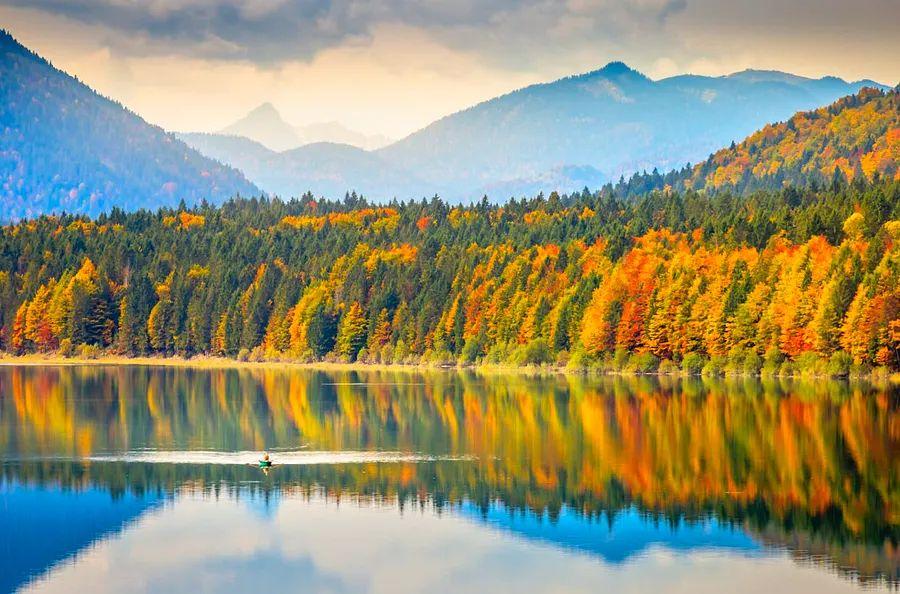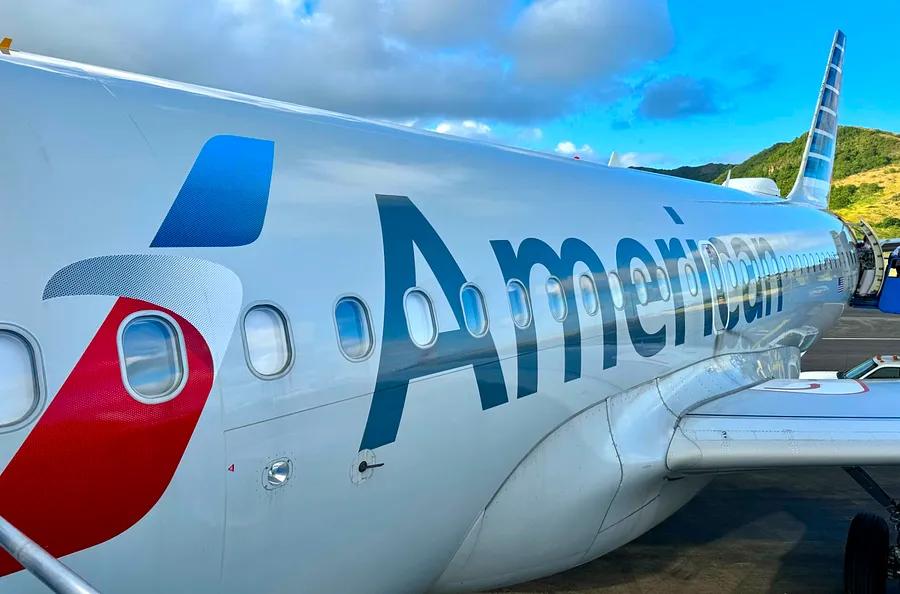12 essential tips for visiting Bavaria, Germany

Imagine reaching the mountain peak after a challenging hike through the Bavarian Alps.
The path resembled a picturesque scene, with vibrant meadows and cheerful cows. However, the hot weather had you sweating, and those final kilometers were tough. The only thing keeping you motivated was the thought of a refreshing drink at the alpine hut at the summit. But once you arrived and stood in line to order, you noticed the sign reading, “Cash Only.” It dawns on you that you forgot to bring cash before the hike, meaning your reward will have to wait.
In Bavaria, many eateries and shops still do not take credit cards. After living in this southern German region for five years, I’m finally accustomed to carrying cash (but only after a disappointing hiking experience). I've learned a few other valuable lessons during my time here as well.
While fairy-tale castles and beer are iconic symbols of Bavarian culture, there’s much more to the region beyond these stereotypes. The following insights on transportation, local customs, and etiquette can help make your visit enjoyable.
 Bavaria is a stunning region, and the locals take pride in preserving its beauty. Getty Images
Bavaria is a stunning region, and the locals take pride in preserving its beauty. Getty Images1. Nature is easily accessible and deserves respect.
Nestled at the foothills of the Alps, Bavaria boasts breathtaking natural scenery. The locals appreciate the stunning landscapes around them, with a strong focus on enjoying and valuing the outdoors. Many residents plan their weekends and vacations around activities like hiking, skiing, and biking, especially enjoying the lakes during the summer months.
If you wish to immerse yourself in the natural beauty during your stay, it’s very easy to do so. From nearly every train station, you’ll find yellow signs detailing hiking trails, complete with difficulty ratings and estimated times. Keep in mind that Bavarians are committed to maintaining their natural environment, so littering on trails (or anywhere else) is strongly discouraged. Make sure to carry out any trash you bring and always show respect for nature during your adventures.
2. Bavaria embraces tradition while leading in modern technology
Bavarians cherish traditional values in their everyday lives, yet the state stands out as a leader in industry and innovation. Even in the more laid-back villages, technological advancement is evident, and it’s not unusual to see luxury sports cars parked along quiet country lanes.
As Germany's wealthiest state, Bavaria boasts a thriving economy with numerous internationally renowned companies, including BMW, Adidas, Siemens, and Audi, all headquartered here.
3. Shops are closed on Sundays, and many only accept cash
Bavaria tends to uphold conservative, religious values more strongly than other regions in Germany. The state's appreciation for tradition contributes to a more relaxed pace of life. This is particularly noticeable during your visit on a Sunday, when many shops and businesses are closed. If you need groceries, you’ll find it challenging on Sundays or after 8 PM on weekdays. Moreover, many smaller establishments and eateries still operate on a cash-only basis.
 Bavaria boasts a casual dining atmosphere, so there’s no need for advance reservations—just find a seat and savor the experience. Peter Adams/Getty Images
Bavaria boasts a casual dining atmosphere, so there’s no need for advance reservations—just find a seat and savor the experience. Peter Adams/Getty Images4. The dining scene is relaxed and informal
In most Bavarian eateries, you won’t need to stress about making reservations. While you might have to wait for a table during peak summer times, generally you can just walk in, take a seat, and unwind. In bustling restaurants or beer gardens, it’s common to share long tables with other diners if there are open spots.
Be aware that water and bread are usually not complimentary in restaurants. Bavarians typically don’t order water when dining out, and if they do, it’s often sparkling from a bottle. If you’d prefer not to pay for water, you can request “Leitungswasser”, but be prepared for a reluctant response if they serve tap water.
5. Each region of Bavaria boasts its own unique identity
Bavaria, as we know it today, is relatively modern, established in 1919. Before this, the various regions were quite autonomous, each with its own culture, traditions, and culinary practices.
For instance, Franconia in the northern part of the state has a distinct history that stretches back over a millennium. Many Franconians consider themselves separate from the rest of Bavaria, while many Bavarians feel distinct from other Germans. This area is known for its medieval cities like Nuremberg, Bamberg, and Würzburg, boasting a rich wine culture that dates back to Roman times. Here, locals are more likely to enjoy Silvaner white wine than beer.
In the western Swabian region, which includes Füssen and the famous Neuschwanstein Castle, there is also a strong cultural identity. This region is celebrated for its culinary heritage, featuring dishes like Spätzle (egg noodles) and Maultaschen (large meat-filled dumplings).
To truly appreciate Bavaria’s regional diversity, pay attention to the various dialects spoken. The primary dialects include Fränkisch, Schwäbisch, and Oberbayerisch in the south, with some Germans finding it challenging to understand Bavarian dialects.
 Pork dishes are a common sight on nearly every menu. Getty Images
Pork dishes are a common sight on nearly every menu. Getty Images6. Being a vegetarian in Bavaria can be quite difficult
Bavarian cuisine is robust and flavorful, but tends to be meat-heavy with limited vegetarian selections. The Schweinshaxe, a massive roasted pork leg, is featured prominently on most menus. While vegetarian options are gaining popularity in cities like Munich, they remain scarce in smaller towns. Sometimes, it can be challenging to confirm whether a dish is truly meat-free. For instance, I once had a waiter assure me that my salad was vegetarian, despite the ham pieces mixed in as 'seasoning.'
If you follow a vegetarian diet or have other dietary needs, finding appropriate options can be tricky. When uncertain, consider ordering Käsespätzle, a cheesy pasta topped with onions. For a vegetable-rich dish, your best choices would be a veggie stew, potato salad, or mushrooms served with dumplings.
7. Tipping is a common practice, but the amounts can differ
In Bavaria, tipping is customary, yet there are no rigid guidelines. While tips are appreciated, servers earn a living wage and don't rely on them. You can usually round your bill to the nearest €5 or €10, or if it's a smaller amount, a 10% tip is appropriate. When paying by card, staff will typically ask how much you’d like to tip and will input the total directly on the card reader at your table. It’s also acceptable to split the bill at the table if dining with a larger group.
8. Dive into the local beer culture
Indeed, the stereotypes hold some truth—beer is considered a staple in Bavaria. It’s not unusual to enjoy beer with breakfast alongside sausage or at work lunches. To blend in at the beer garden, remember to clink glasses before taking a sip, and cheers with enthusiasm. The German term for 'cheers' is “Prost” (or “Zum Wohl” for wine), and you’ll hear these phrases frequently in beer halls.
Additionally, Germans emphasize strong eye contact when toasting. While the origins of this custom are unclear, it’s said that failing to maintain eye contact could result in seven years of bad sex. Whether or not you believe in this superstition, it’s wise to follow local customs. Another useful tip is that most beer gardens allow you to bring your own food, though you cannot bring your own drinks.
In Bavaria, enjoying a drink in public is perfectly legal and widely accepted, but the state maintains a strict zero-tolerance stance on drugs, including marijuana.
 Always clink your glasses before sipping your beer, and remember to keep eye contact during the toast. Getty Images
Always clink your glasses before sipping your beer, and remember to keep eye contact during the toast. Getty Images9. Oktoberfest isn't the sole beer festival in the area
Lively beer gardens brimming with drinks and oversized pretzels are often the quintessential image associated with Bavaria. The region is famous for hosting Oktoberfest annually, the largest beer festival worldwide.
Oktoberfest isn’t the only beer festival that Bavaria has to offer. For a more genuine Bavarian experience, check out the regional festivals that take place from spring to autumn. While Oktoberfest draws a more international, tourist-oriented crowd with its hefty prices, these smaller folk festivals are the true gathering spots for locals.
For a taste of history, don’t miss Erlangen’s Bergkirchweih, celebrated from late May to early June. Here, you can enjoy local brews beneath majestic chestnut trees, accompanied by traditional folk music, fairground attractions, and a rich cultural ambiance. Expect to see everyone dressed in Tract, the traditional attire. Other towns like Rosenheim, Straubing, and Fürth also host annual festivals worth attending.
10. Discover the region by train
Bavaria's public transportation system is quite reliable, making it a convenient option for exploring the area. Although locals often grumble about Deutsche Bahn (the national railway), you can usually count on the schedules listed on the DB website and app. If you plan to travel around Bavaria for the day, consider the Bayern Ticket, which allows unlimited travel within the region for 24 hours, available for both individual and group use.
To explore your ticket options and plan your journeys, download the DB Navigator app from Deutsche Bahn. This handy app enables you to purchase tickets and check real-time schedules right from your mobile device.
11. Bavaria is Germany's safest state
Boasting a low crime rate, Bavaria is regarded as an exceptionally secure place. You can stroll alone at night without fear, and if you accidentally leave your wallet or valuables behind at a restaurant, there's a good chance you’ll retrieve them easily. While it's always wise to stay alert while traveling, Bavaria allows for a bit more relaxation when it comes to safety.
The cleanliness of Bavaria is remarkable. Perhaps due to the abundance of trash cans, the area is notably free of litter and mess. You can drink the tap water everywhere, except where indicated by a sign stating, “Kein Trinkwasser.”
For emergencies, call 110 for police assistance and 112 for fire and medical help.

1

2

3

4

5
Evaluation :
5/5